Average Battery Life for Electric Lawn Mowers
When it comes to electric lawn mowers, battery life is a crucial aspect influencing performance. Most electric mowers can typically run for 30 to 60 minutes on a single charge, depending on the model and the conditions of use. This time frame is usually sufficient for small to medium-sized lawns. However, it's essential to consider the battery's age and health, as these factors can affect its overall capacity and efficiency over time. Homeowners often need to plan their mowing sessions around the battery's limitations or keep a spare battery on hand to extend operation time if needed.
Impacts of Battery Life on Performance
Battery life directly influences the performance of electric lawn mowers. As the battery drains, its power output can decrease, leading to less efficient mowing and potentially leaving patches of uncut grass. This is particularly noticeable when dealing with thicker grass or larger lawns, where sustained power is necessary to maintain consistent performance. Users must also consider the battery's lifespan, as it affects long-term usability and cost efficiency. Over time, repeated charge cycles can reduce battery capacity, necessitating replacements.
Recharging Time and Convenience
The convenience of recharging is another significant factor. Most modern electric lawn mower batteries take between 1 to 4 hours to recharge fully, although some fast-charging models are available. Homeowners need to consider the downtime required for recharging, which can interrupt mowing sessions, especially for larger properties. However, advancements in battery technology are continually improving recharge times and increasing convenience. Moreover, the ability to recharge batteries at home without the need for special equipment adds to the appeal of electric mowers.
Fuel Consumption of Gas-Powered Lawn Mowers
Gas-powered lawn mowers are powered by unleaded gasoline, and their fuel consumption can vary widely based on engine size and mowing conditions. On average, a standard gas mower can operate for approximately one to two hours on a full tank, depending on the intensity of use and the terrain. This makes them more suitable for larger areas of grass, as they can run longer without requiring refills compared to electric mowers, which may need recharging midway through the task.
Efficiency Over Long Periods of Use
Fuel efficiency is a critical aspect of gas-powered mowers, particularly for those tasked with regular, extensive mowing. While gas mowers are generally more powerful and can handle tougher conditions, their long-term fuel consumption can become significant. Efficient operation depends not only on the engine’s inherent fuel efficiency but also on proper maintenance, including regular tune-ups, air filter cleaning, and spark plug replacements. Consistent maintenance ensures that the engine runs effectively, thereby reducing overall fuel consumption.
Impact of Maintenance on Fuel Efficiency
Regular maintenance is essential to keep gas-powered mowers operating at peak efficiency. Neglecting maintenance can lead to higher fuel consumption and decreased performance. Key maintenance tasks include oil changes, air filter replacements, and routine inspections of fuel lines and spark plugs. Regularly maintaining these components can significantly enhance the mower’s fuel efficiency, leading to more cost-effective operation over time. However, this additional upkeep can be a drawback for users looking for a more hands-off mowing experience.
Noise and Environmental Considerations
Noise Levels During Operation
Noise levels are a notable difference between electric and gas-powered lawn mowers. Electric mowers tend to operate much more quietly, producing sound levels between 65 to 75 decibels, which is comparable to normal conversation. This reduced noise level is highly advantageous for urban and suburban homeowners who wish to avoid disturbing neighbors or who prefer to mow early in the morning or late in the evening.
Noise Impact on User Comfort
The quieter operation of electric lawn mowers not only benefits the community but also enhances user comfort. Prolonged exposure to loud noise from gas mowers, which can reach 90 decibels or more, can lead to hearing fatigue and discomfort. For those who frequently mow their lawns, an electric mower provides a more pleasant and less intrusive experience. This is particularly relevant for homeowners with tight schedules who might need to mow their lawns outside traditional working hours.
Community Noise Regulations
Many communities have noise regulations that can affect when and how you can use your lawn mower. Electric mowers, with their quieter operation, are more likely to comply with these regulations, offering greater flexibility in mowing times. This compliance can be particularly beneficial in tightly packed residential areas where noise ordinances are strictly enforced, allowing homeowners to maintain their lawns without the risk of fines or complaints.
Environmental Impact and Sustainability
In the modern age, environmental sustainability is a significant concern for many homeowners. Electric lawn mowers have a clear advantage in this regard, as they produce zero emissions during operation. This not only contributes to reduced carbon footprints but also leads to a healthier environment by minimizing pollutants.
Emission Levels for Electric vs. Gas-Powered Lawn Mowers
Gas-powered mowers are known to emit carbon monoxide, hydrocarbons, and nitrogen oxides, all of which contribute to air pollution. On the other hand, electric mowers dramatically reduce these harmful emissions. While the production of electricity for recharging batteries does have some environmental impact, it is considerably less than the cumulative emissions produced by gas engines over their lifetime.
Long-Term Environmental Benefits
Over the long term, the environmental benefits of using electric mowers are substantial. By reducing the reliance on fossil fuels, electric mowers help to lower greenhouse gas emissions and other pollutants. Additionally, innovations in renewable energy mean that battery recharging can increasingly be powered by clean energy sources, further enhancing the environmental benefits. Transitioning to electric mowers can play a crucial part in broader efforts to create sustainable residential areas.
Cost Implications
Initial Purchase Price Comparison
The initial cost of a lawn mower is a significant consideration for many buyers. Typically, electric lawn mowers have higher upfront costs compared to gas-powered models. High-quality electric mowers, especially those with larger batteries or advanced features, can range from $300 to $600 or more.
Upfront Cost of Electric Lawn Mowers
The upfront cost of electric lawn mowers includes the mower itself and the battery and charger. While electric models might seem expensive initially, they often don't require the additional purchases or repairs common with gas models, such as oil, air filters, and spark plugs. Additionally, many users find the investment worthwhile given the lower long-term maintenance and operating costs.
Upfront Cost of Gas-Powered Lawn Mowers
Gas-powered lawn mowers generally have a lower initial purchase price, typically ranging from $200 to $400, depending on the model and brand. However, this lower price tag can be misleading when considering long-term costs associated with fuel purchase, regular maintenance, and potential repairs. Despite the lower initial cost, the cumulative expenses can add up over the mower’s lifespan.
Maintenance and Operating Costs
Maintenance and operating costs are ongoing expenses that can significantly affect the total cost of ownership for both electric and gas lawn mowers.
Ongoing Expenses for Electric Models
Electric lawn mowers usually incur lower ongoing expenses. The primary operating cost is electricity for recharging the batteries, which is relatively inexpensive. Additionally, maintenance requirements are minimal, typically involving simple tasks like cleaning the mower and periodically sharpening the blades. Since electric mowers have fewer moving parts, they have a lower likelihood of requiring costly repairs.
Ongoing Expenses for Gas Models
Gas mowers, on the other hand, involve more substantial ongoing costs. Fuel purchases are a significant expense, especially with fluctuating gasoline prices. Regular maintenance tasks, such as oil changes, spark plug replacements, and air filter cleaning or replacements, also contribute to higher ownership costs. Moreover, gas engines are more complex and susceptible to wear and tear, potentially leading to costly repairs over time.
User Experience
Ease of Use and Convenience Features
The user experience is an important aspect to consider when choosing between electric and gas lawn mowers. Ease of use and convenience features can greatly enhance the overall satisfaction with your mower.
Start-Up Procedures (Electric vs. Gas)
Electric lawn mowers are generally easier to start, requiring a simple push of a button or a turn of a key, making them quick and convenient. In contrast, gas mowers typically require a manual pull-start, which can be cumbersome and physically demanding, especially for those with limited strength or mobility. This ease of starting can save users time and effort, making mowing a more pleasant experience.
Maneuverability and Weight Differences
Electric mowers are often lighter and more maneuverable than their gas counterparts, making them easier to navigate around tight corners, trees, and flower beds. The reduced weight also makes electric mowers more suitable for users who may struggle with heavier machinery. Gas mowers, being heavier due to their more robust engines and fuel tanks, can be more challenging to maneuver, particularly in smaller yards or around intricate landscaping.
Long-Term Reliability
Long-term reliability is a critical factor for any homeowner. Electric lawn mowers tend to have fewer mechanical issues due to their simpler design and fewer moving parts. This reliability can translate into lower repair costs and fewer disruptions to your mowing schedule. Gas mowers, while powerful, can be prone to more frequent mechanical issues, necessitating regular maintenance and potential repairs over time.
Key Takeaways on Choosing the Right Type
Choosing the right lawn mower boils down to understanding your specific needs and preferences. Electric lawn mowers are excellent for small to medium-sized yards, offering the benefits of quieter operation, lower maintenance, and minimal environmental impact. They are a sound choice for homeowners who prioritize eco-friendliness and ease of use.
Gas-powered lawn mowers, with their superior power and fuel efficiency, are ideal for larger properties and tougher mowing conditions. They are suited for users who need to tackle thicker grass and uneven terrain regularly. However, the trade-offs include higher maintenance requirements, louder operation, and environmental emissions.
In conclusion, assessing the power capabilities, user experience, and long-term costs associated with both electric and gas models is essential to make an informed decision. By considering factors such as yard size, terrain type, and personal preferences, homeowners can choose the lawn mower that best meets their needs for maintaining a beautiful and healthy lawn.
Whether it is Electric Lawn Mowers or Gas-Powered Lawn Mowers, PowerSmart can provide you with quality choices.
PowerSmart offers a range of lawn mowers, including gas-powered and electric models, each with its own unique features and benefits.

Gas-Powered Lawn Mowers from PowerSmart are designed to deliver powerful performance and durability. These mowers are equipped with high-performance engines, such as the 144cc OHV 4-stroke engine, which provides unbeatable power for a better cutting effect. With features like recoil starter and auto choke, starting the gas-powered mower is easy and hassle-free. PowerSmart gas-powered mowers are available in different models, such as the 17" 144cc Gas Push 3-in-1 Lawn Mower and the 21 " 170cc Gas Self-Propelled 3-in-1 Lawn Mower. These mowers offer mulching and side discharge capabilities, providing versatility in lawn care. Additionally, the gas-powered mowers operate quietly and emit no harmful emissions, ensuring a peaceful environment and contributing to a greener planet.

On the other hand, PowerSmart also offers Electric Lawn Mowers, including the Cordless Lawn Mower. These mowers are ideal for budget-conscious consumers looking for lightweight and easy-to-use options for basic lawn maintenance. Powered by a powerful battery, such as the PowerSmart 80V 6.0Ah Battery, the cordless mower provides up to 60 minutes of run time on a single charge, allowing it to cut over 1/2 acre of grass. The electric mowers feature a 21", 22", and 26" steel deck and a top-rated brushless motor, ensuring fast mowing, quiet operation, and a longer lifespan. With a 3-in-1 functionality, including mulching, side discharge, and rear bag discharge, these mowers offer versatility in grass disposal. The electric mowers are also maintenance-free, eliminating the need for gas and reducing emissions.
In summary, PowerSmart offers both gas-powered and electric lawn mowers. The gas-powered mowers deliver powerful performance with features like high-performance engines and easy starting mechanisms. The electric mowers, on the other hand, provide a budget-friendly and eco-friendly option with long run times and maintenance-free operation. Whether you prefer the power of gas or the convenience of electric, PowerSmart has a lawn mower to suit your needs.









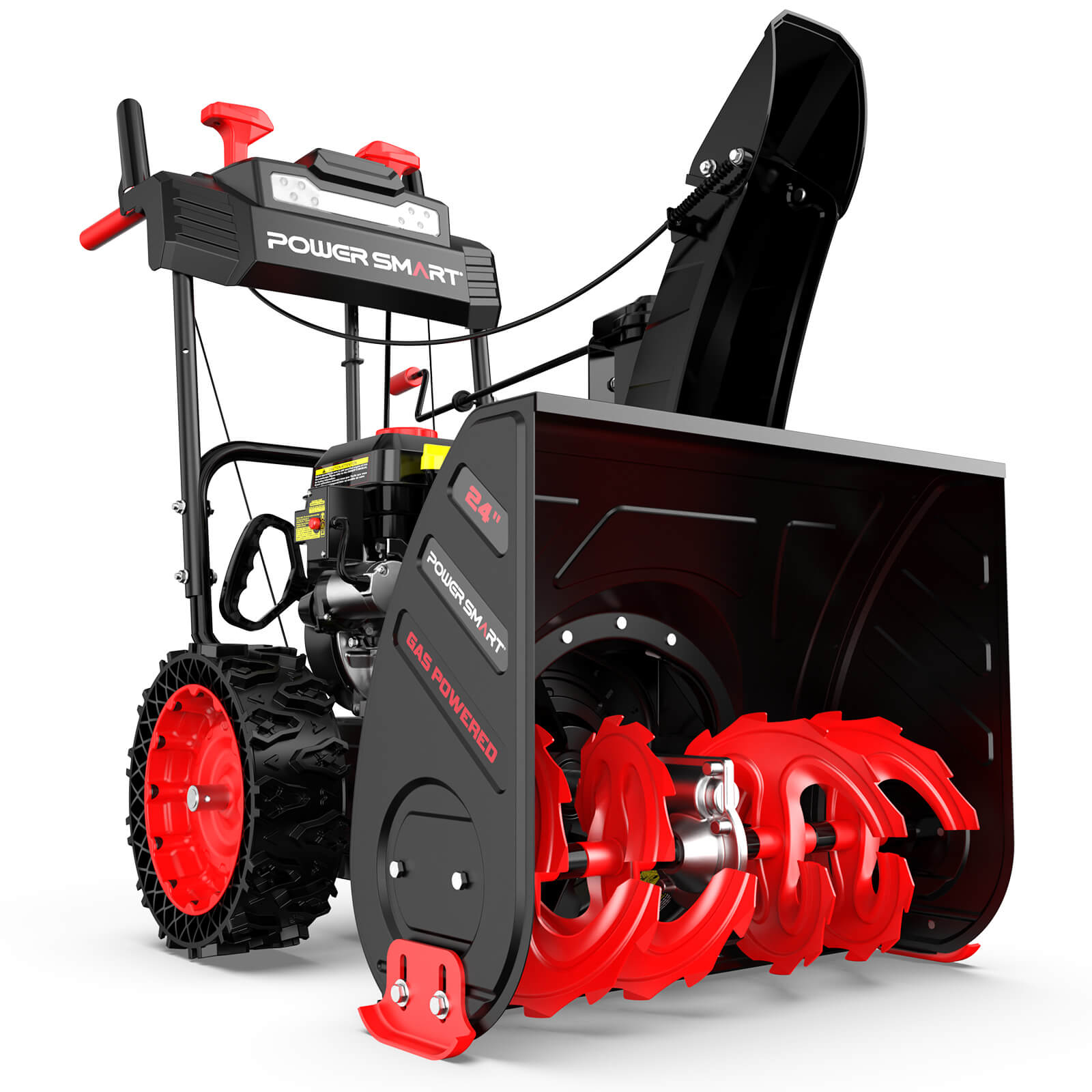
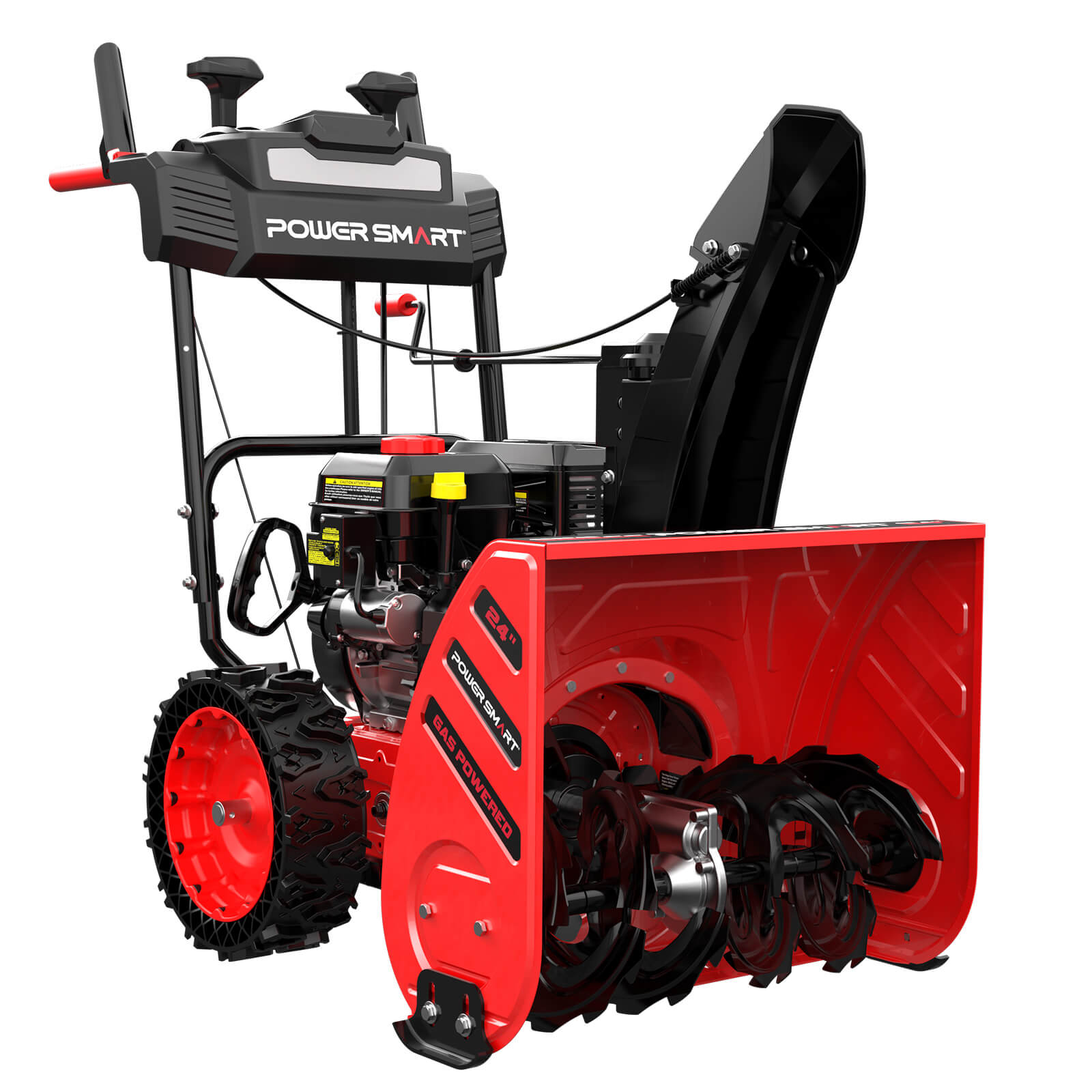
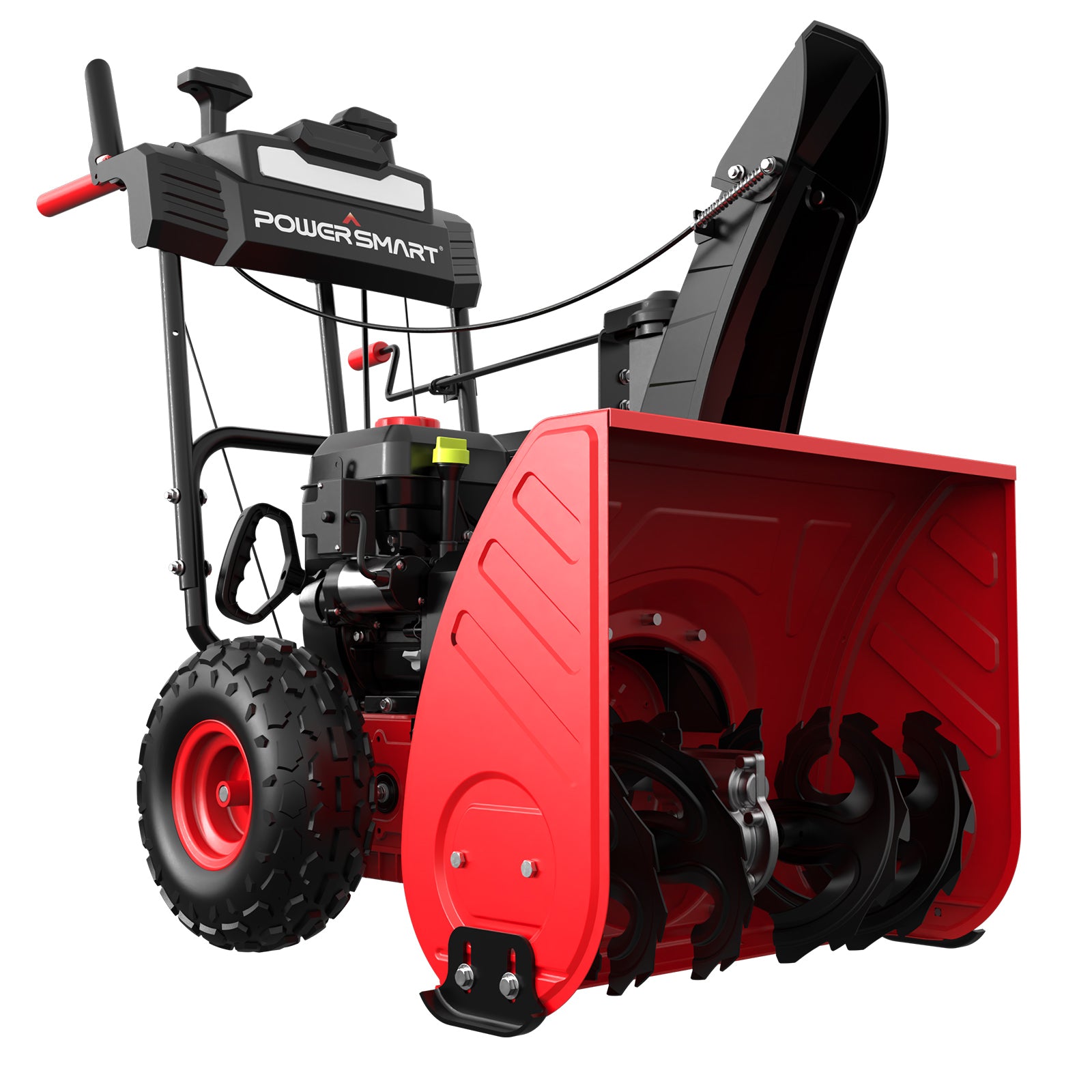

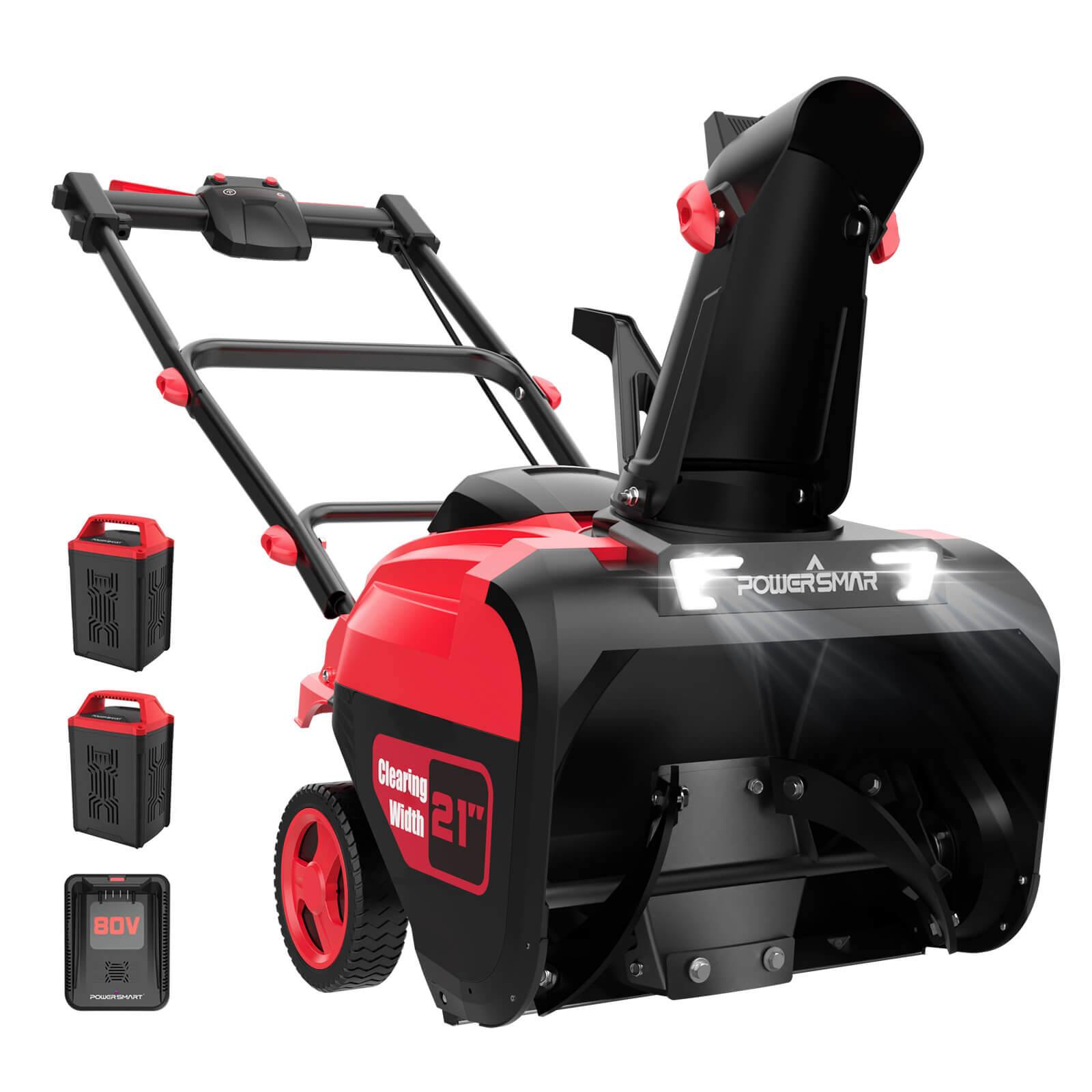

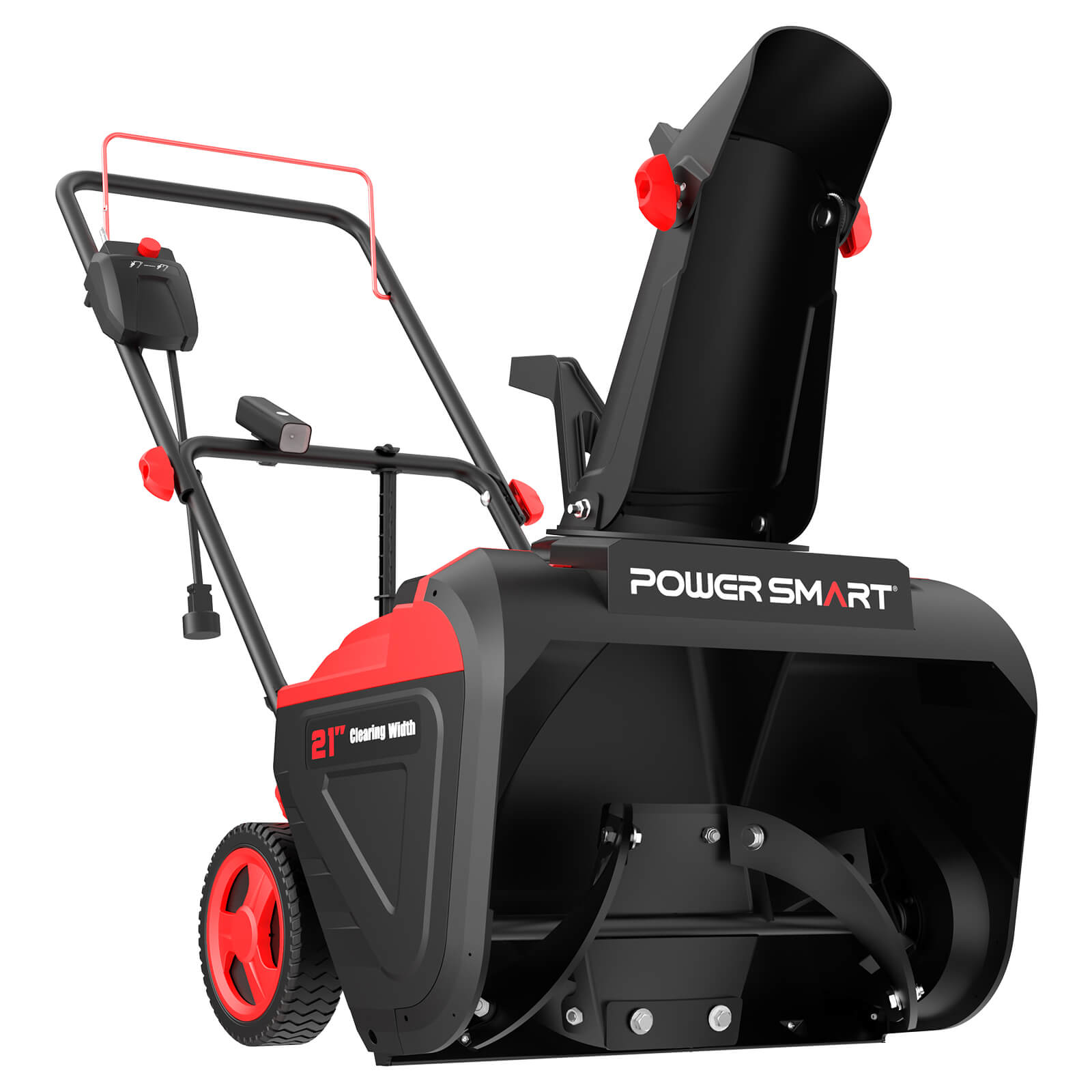












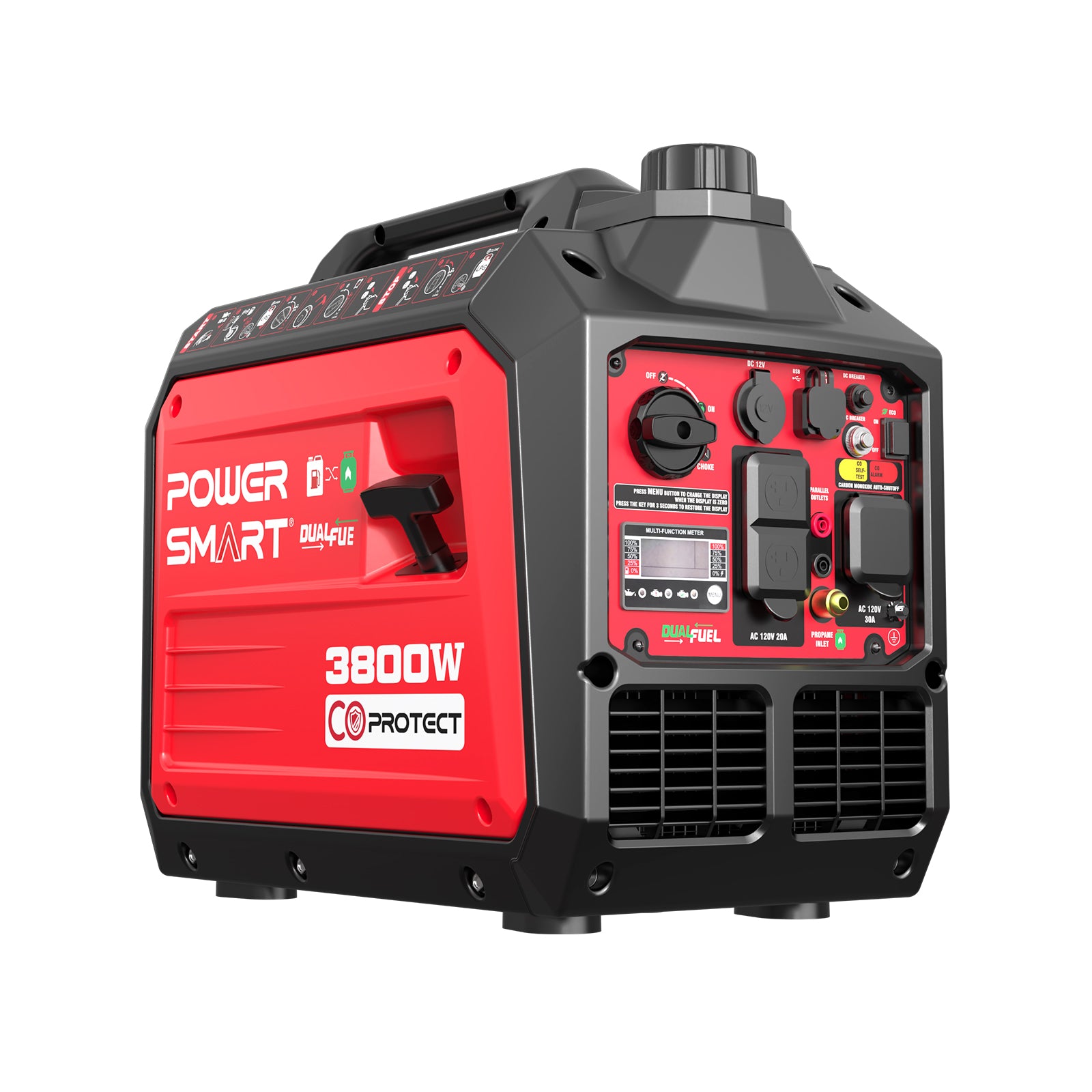














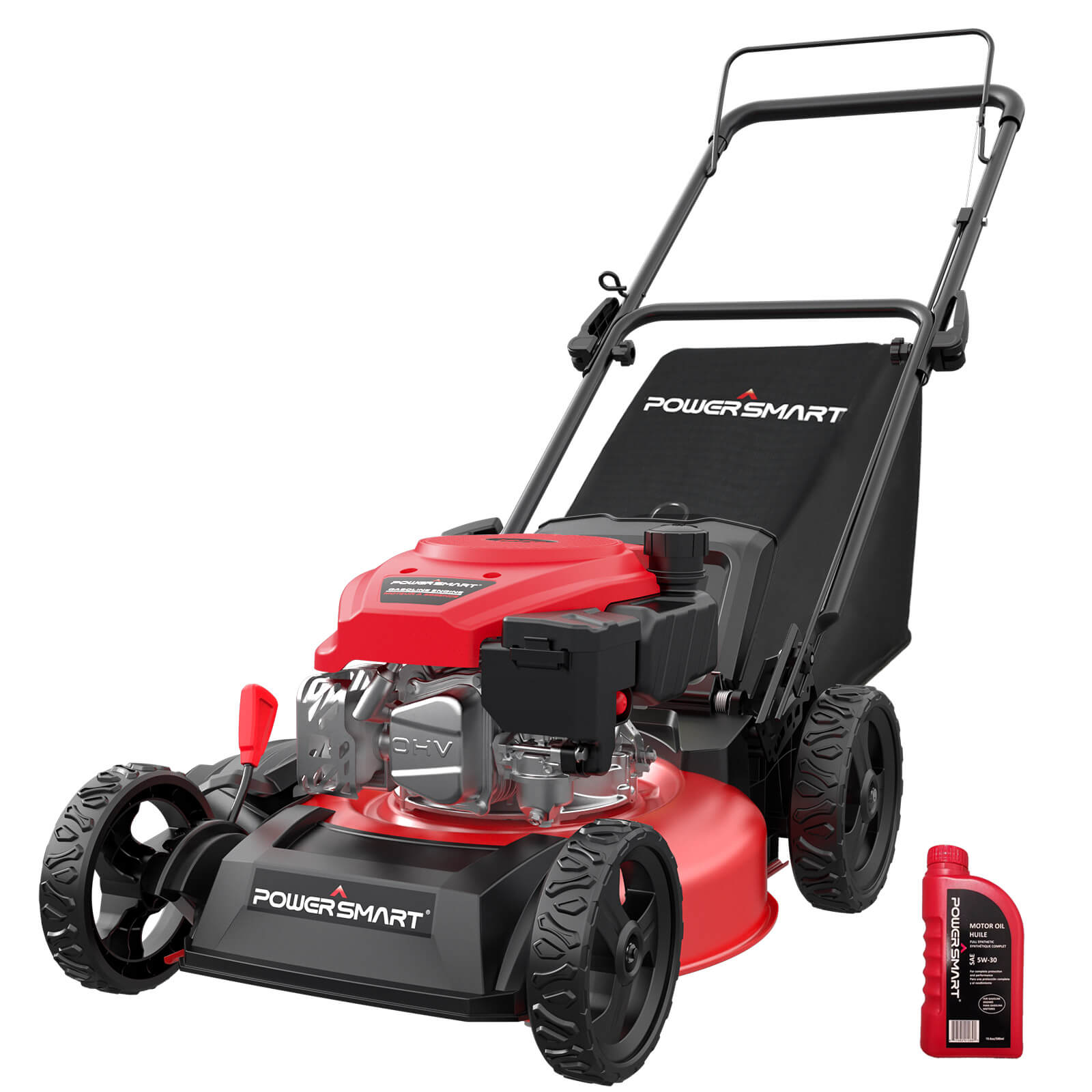

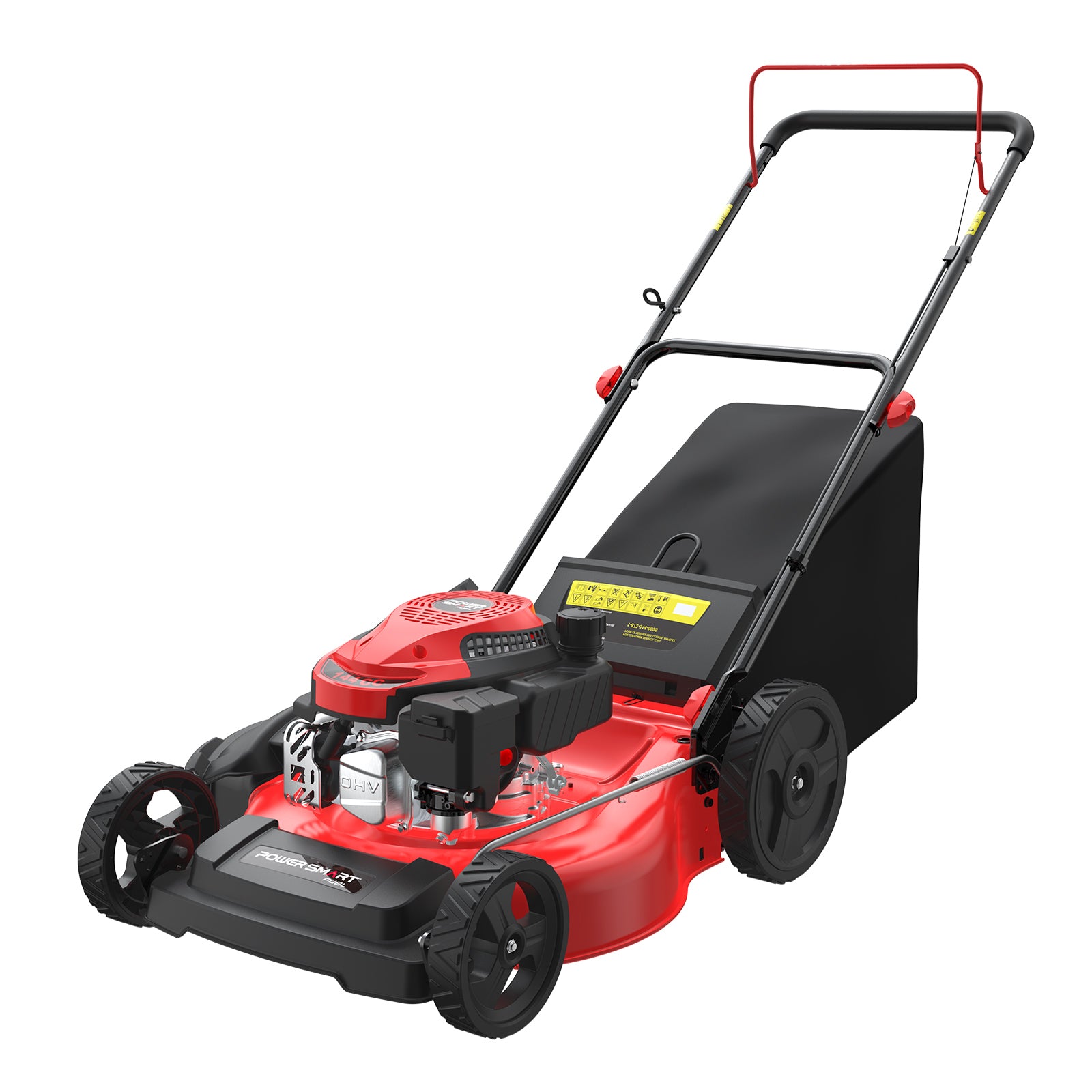



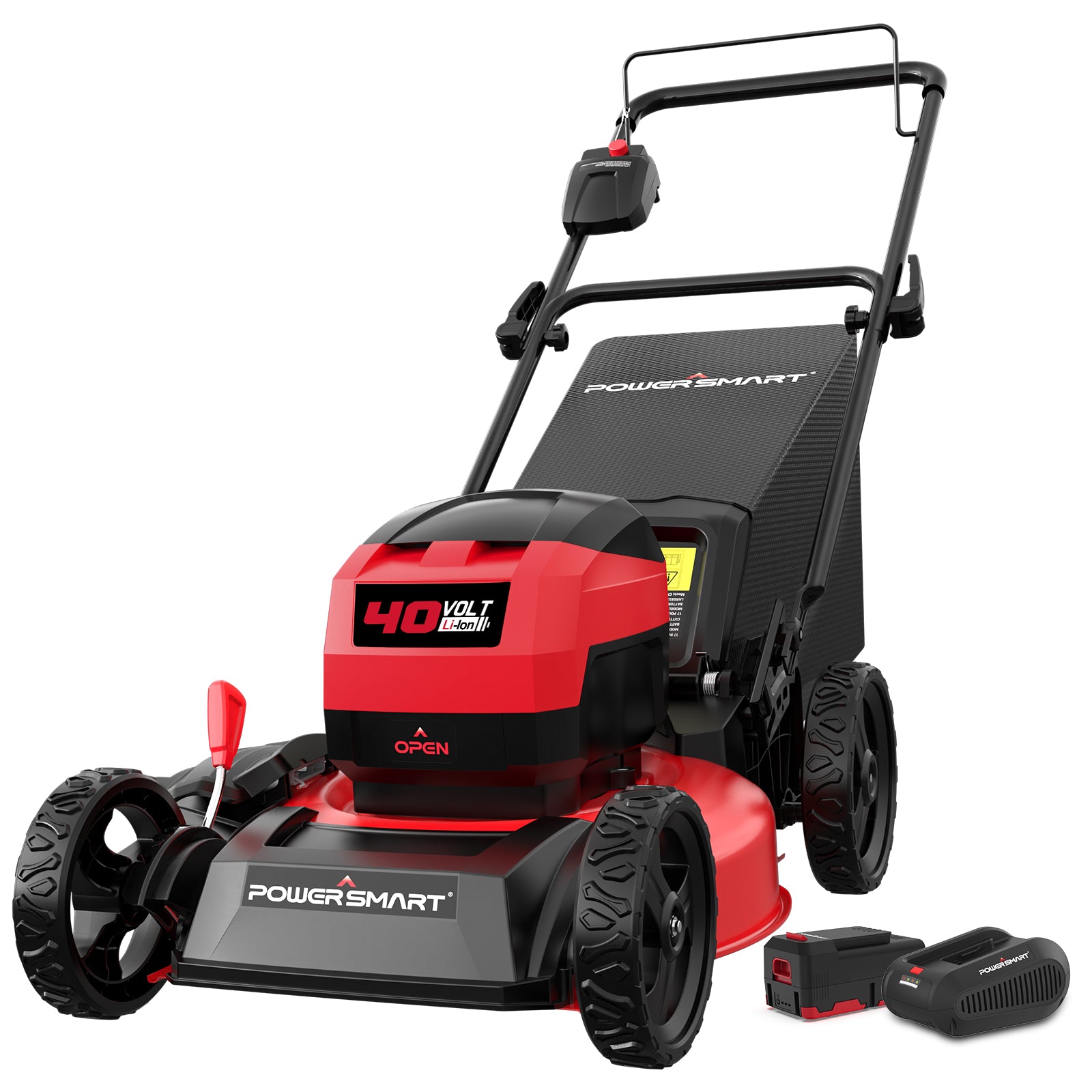

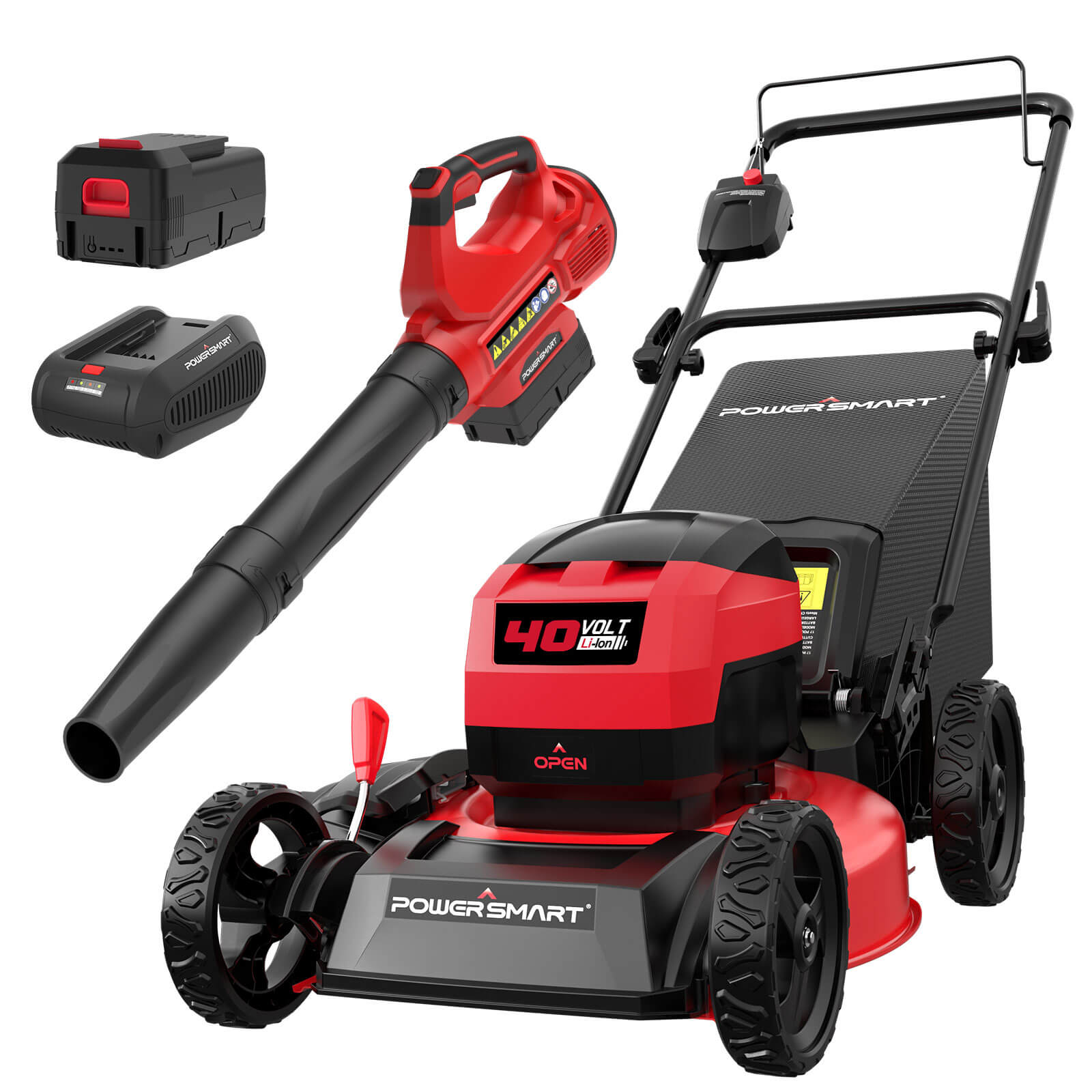
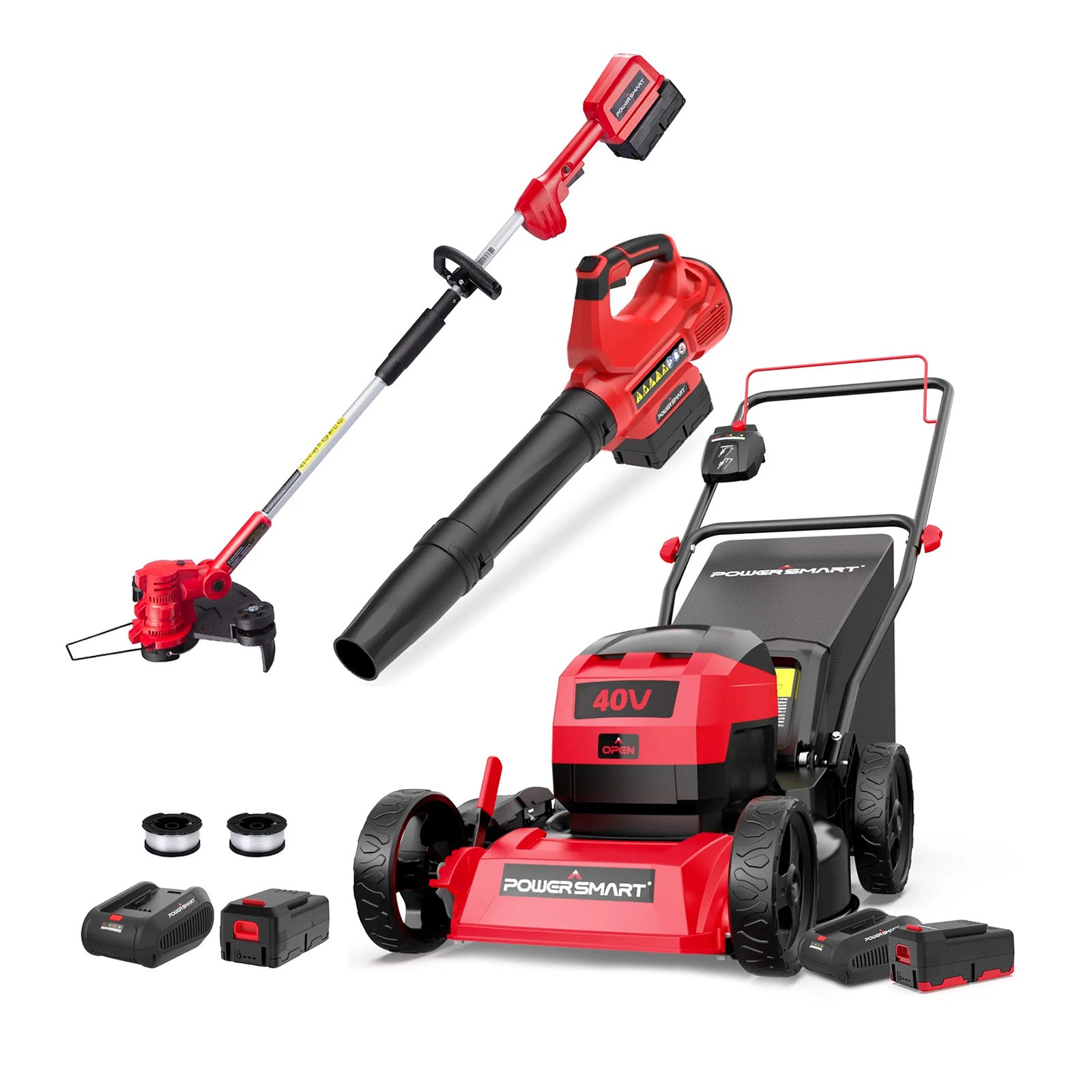
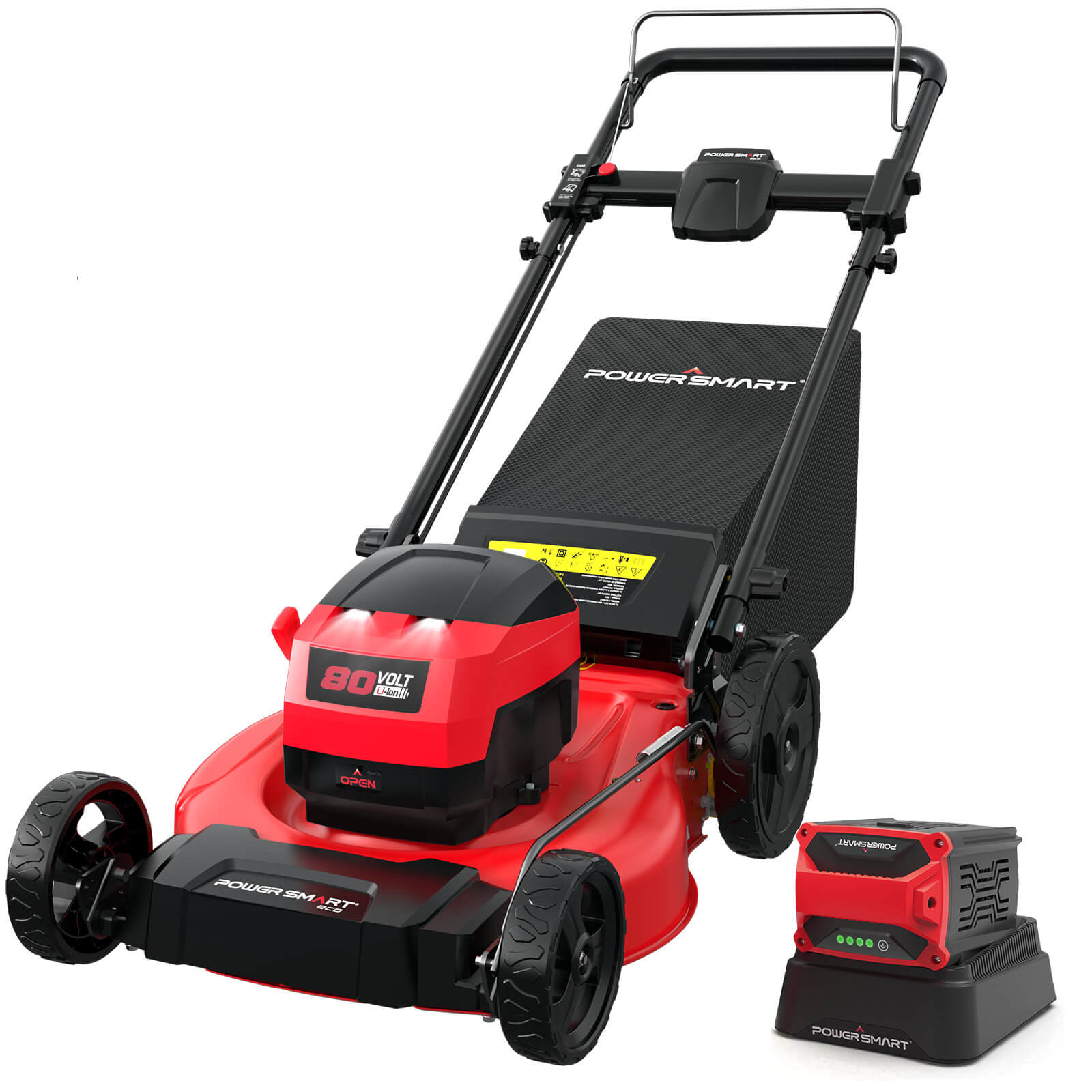
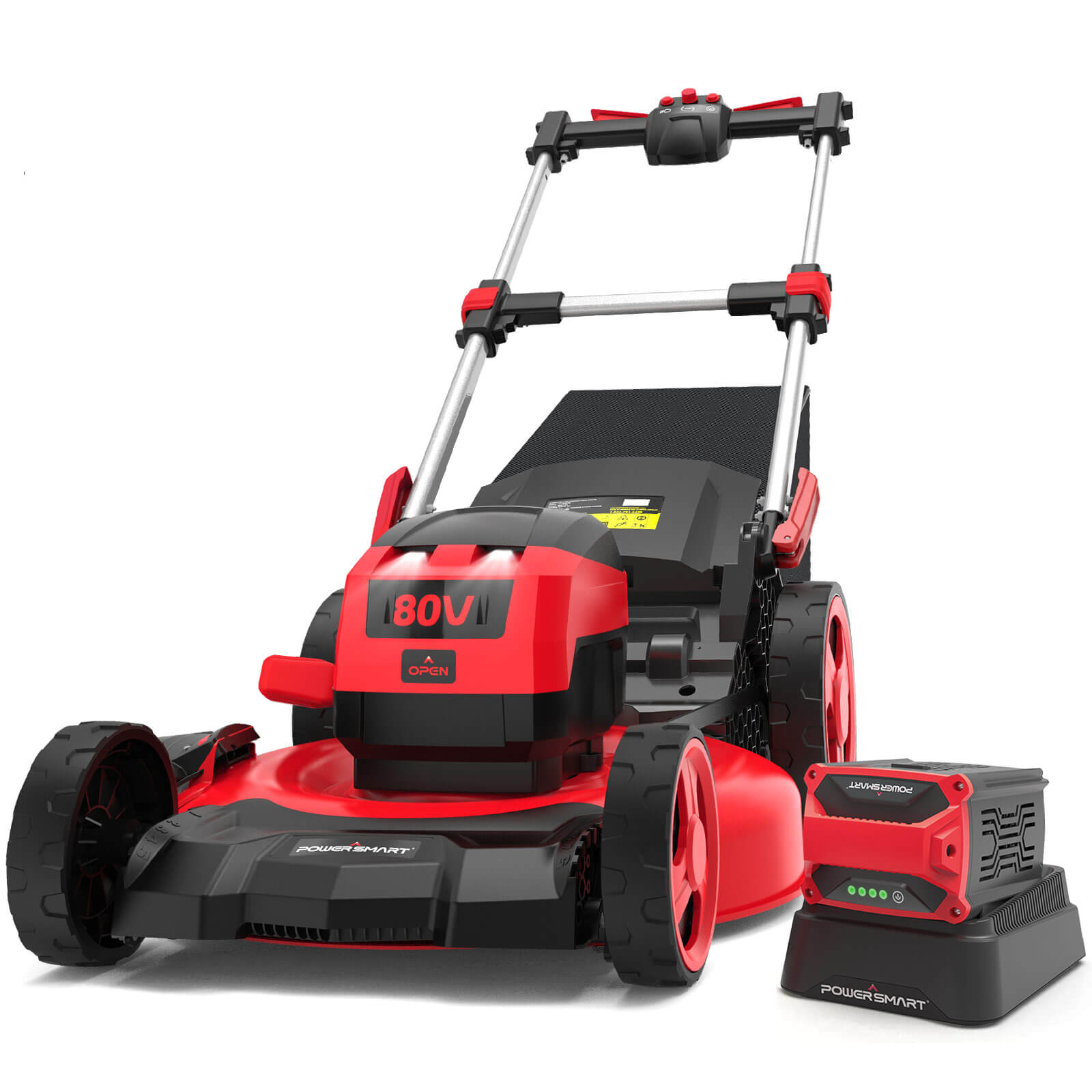









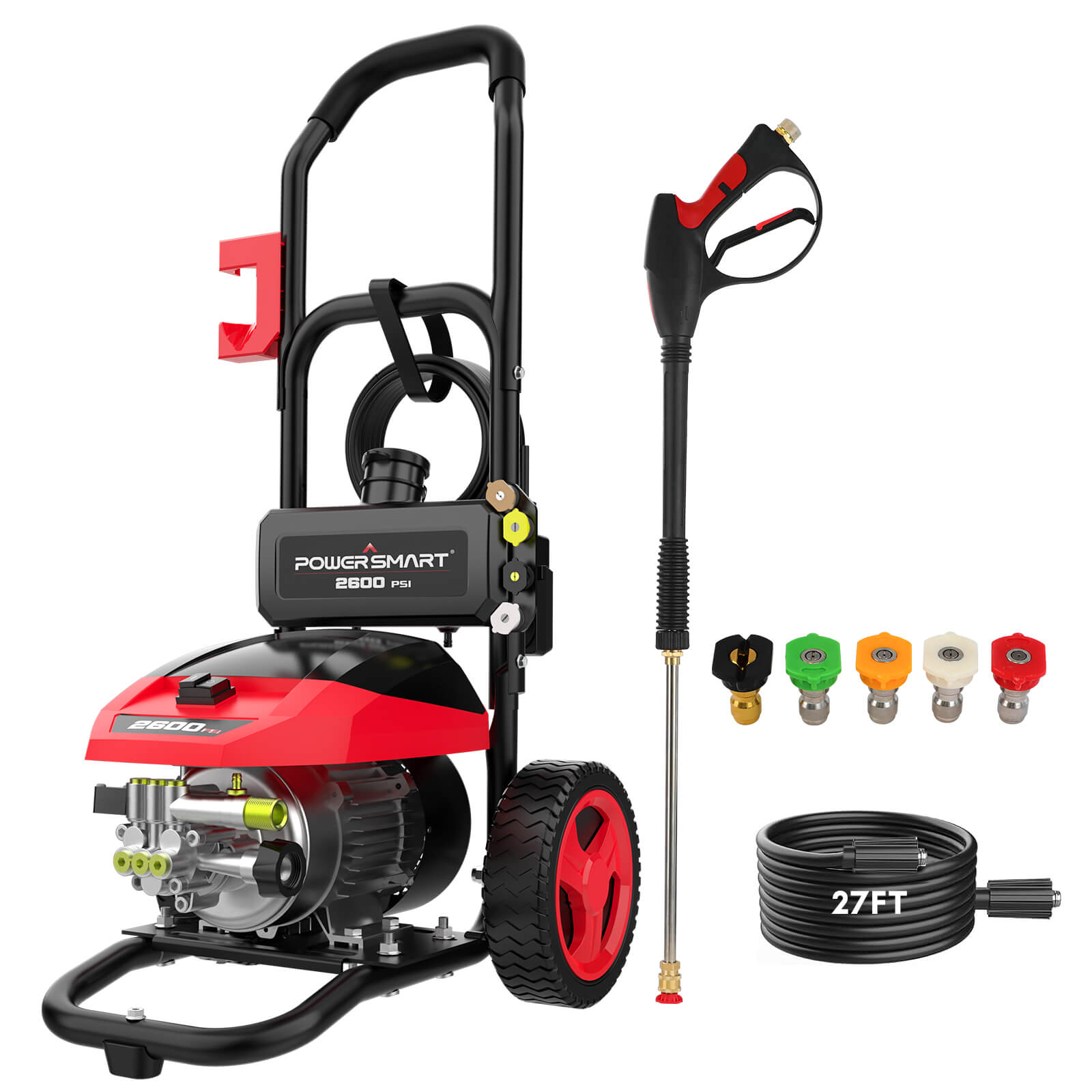
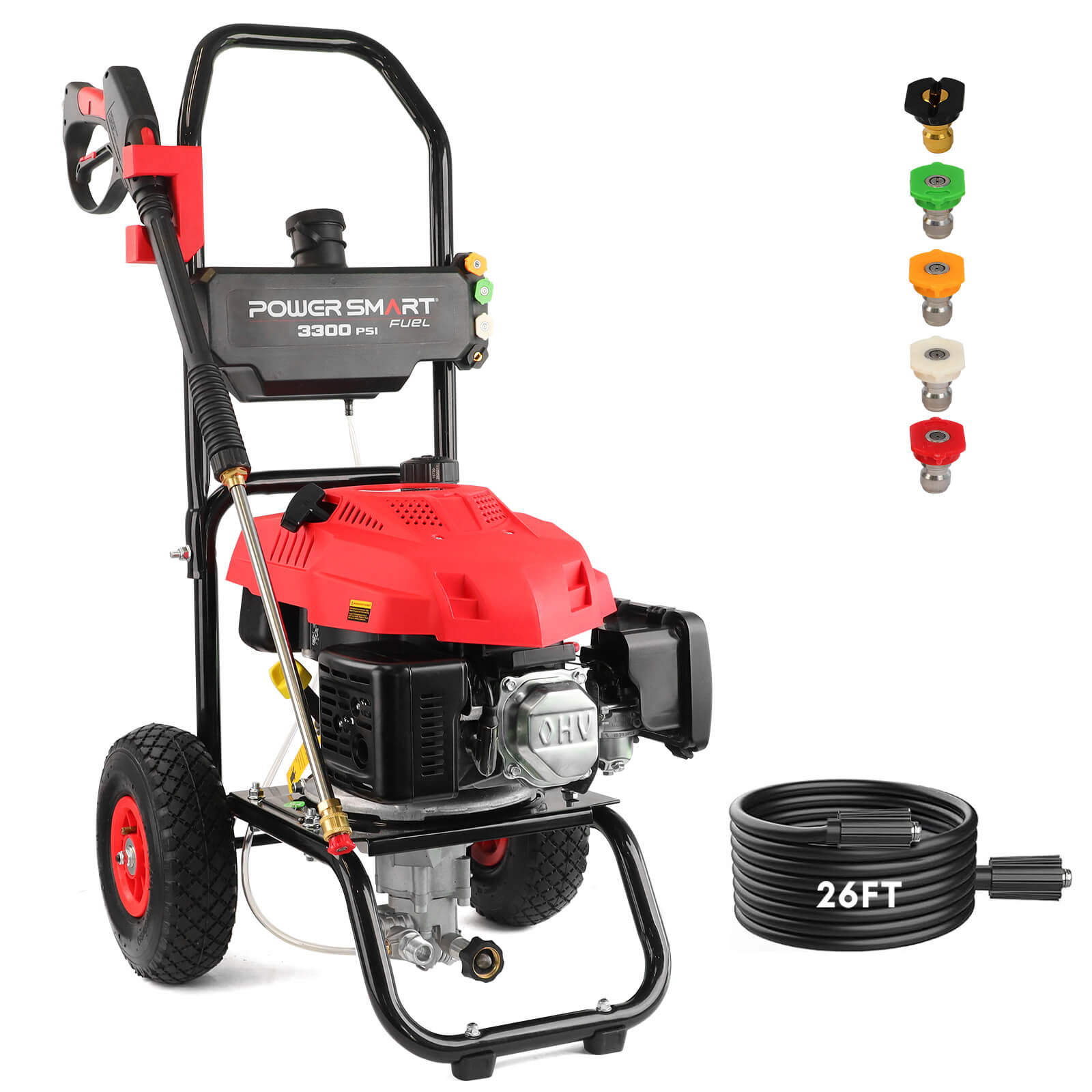
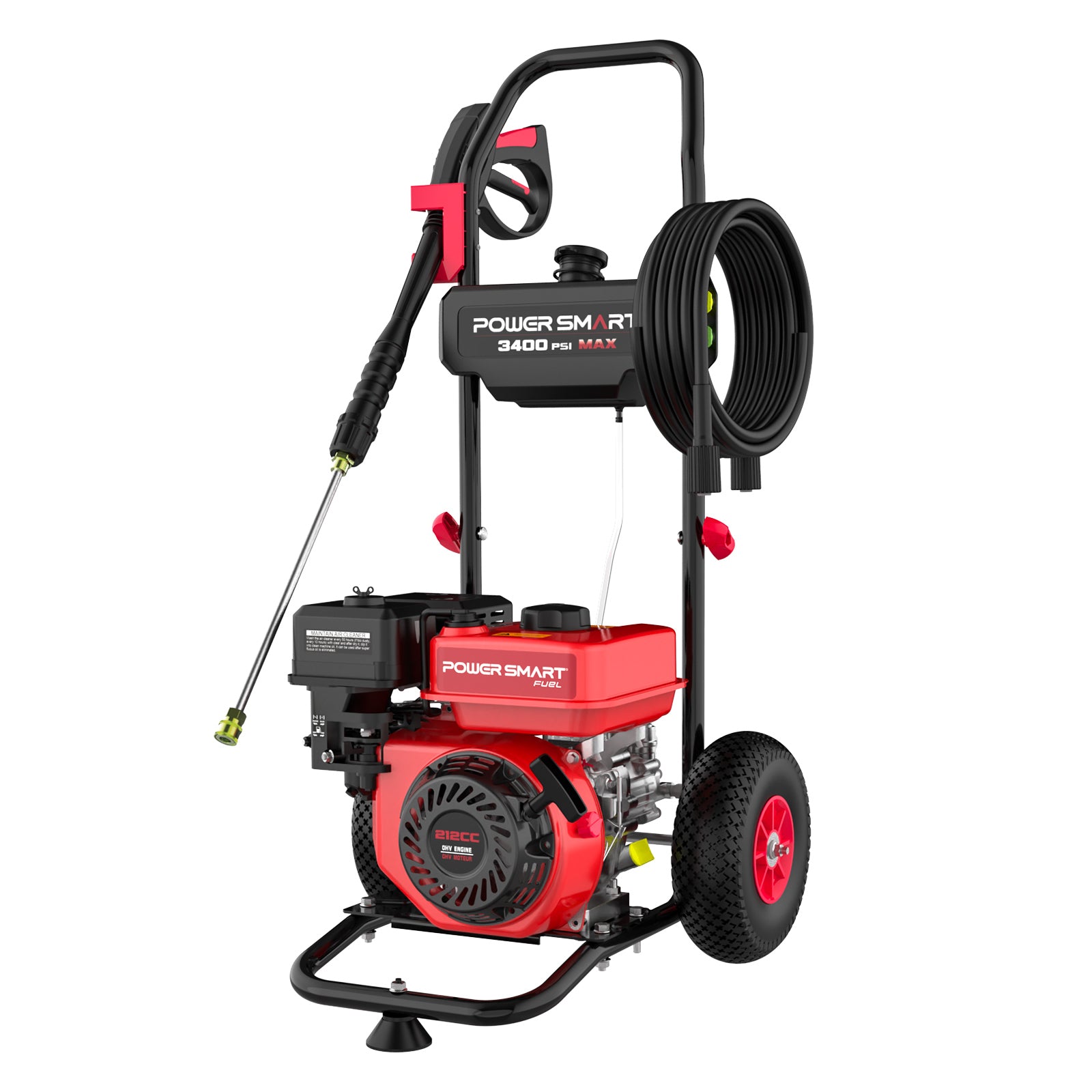
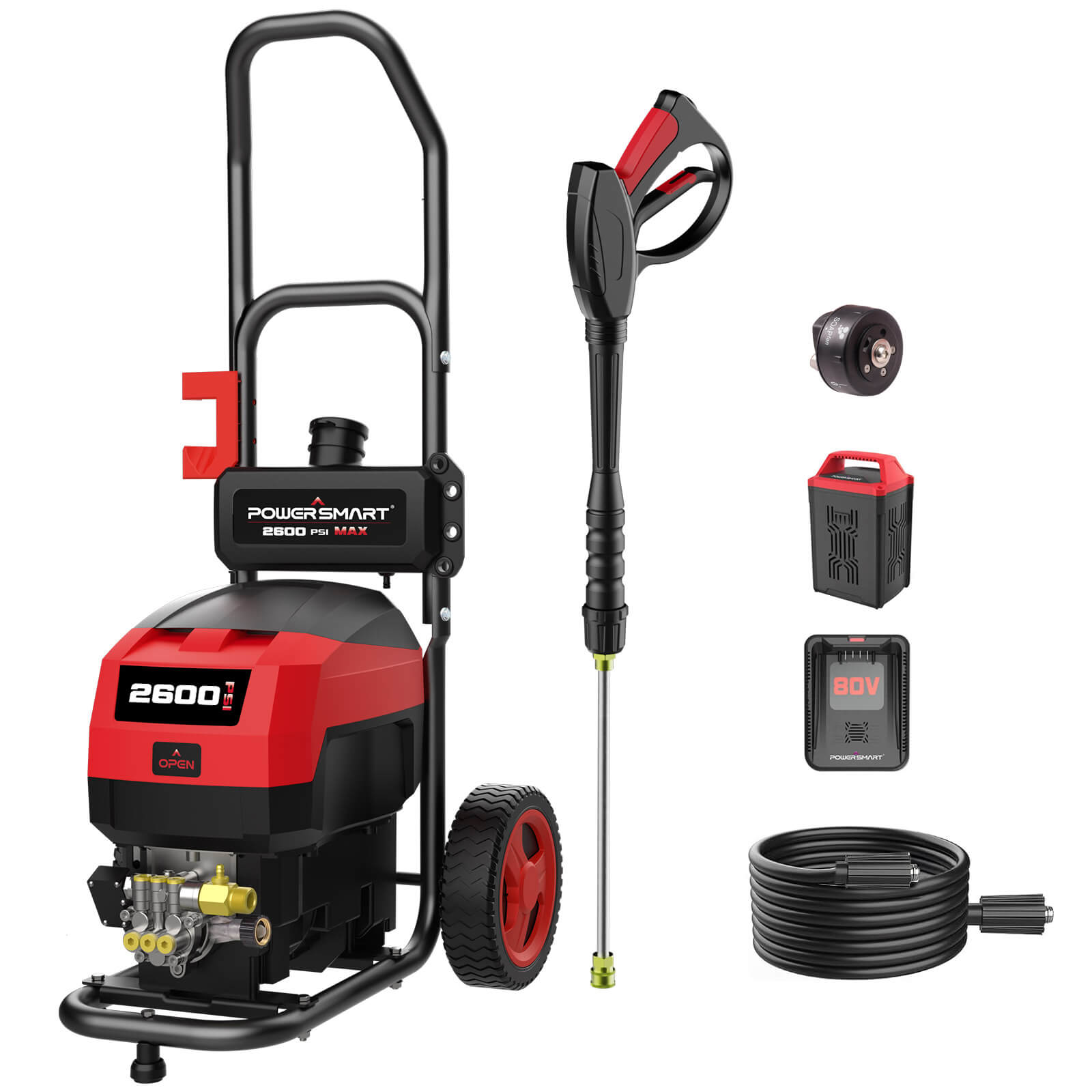
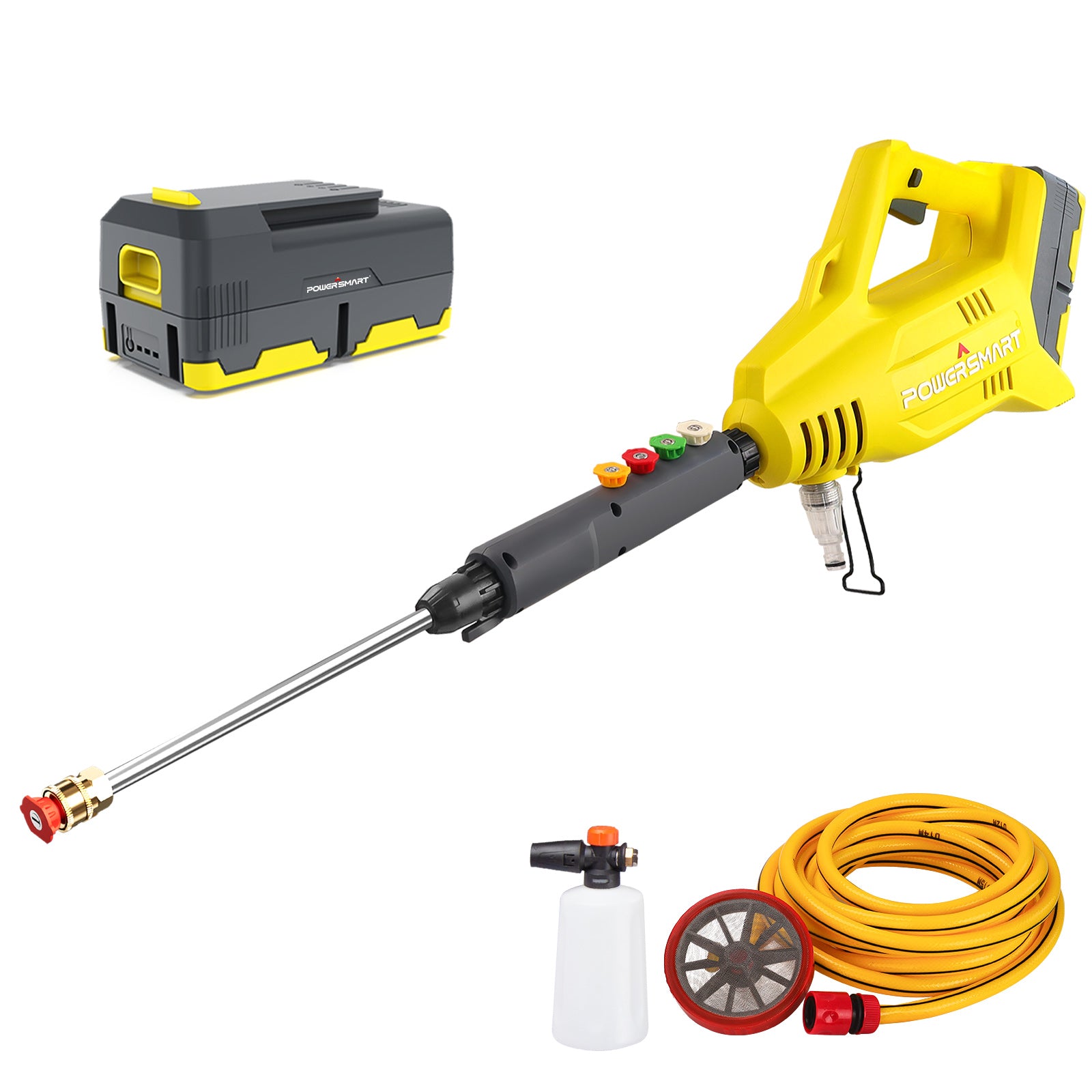
















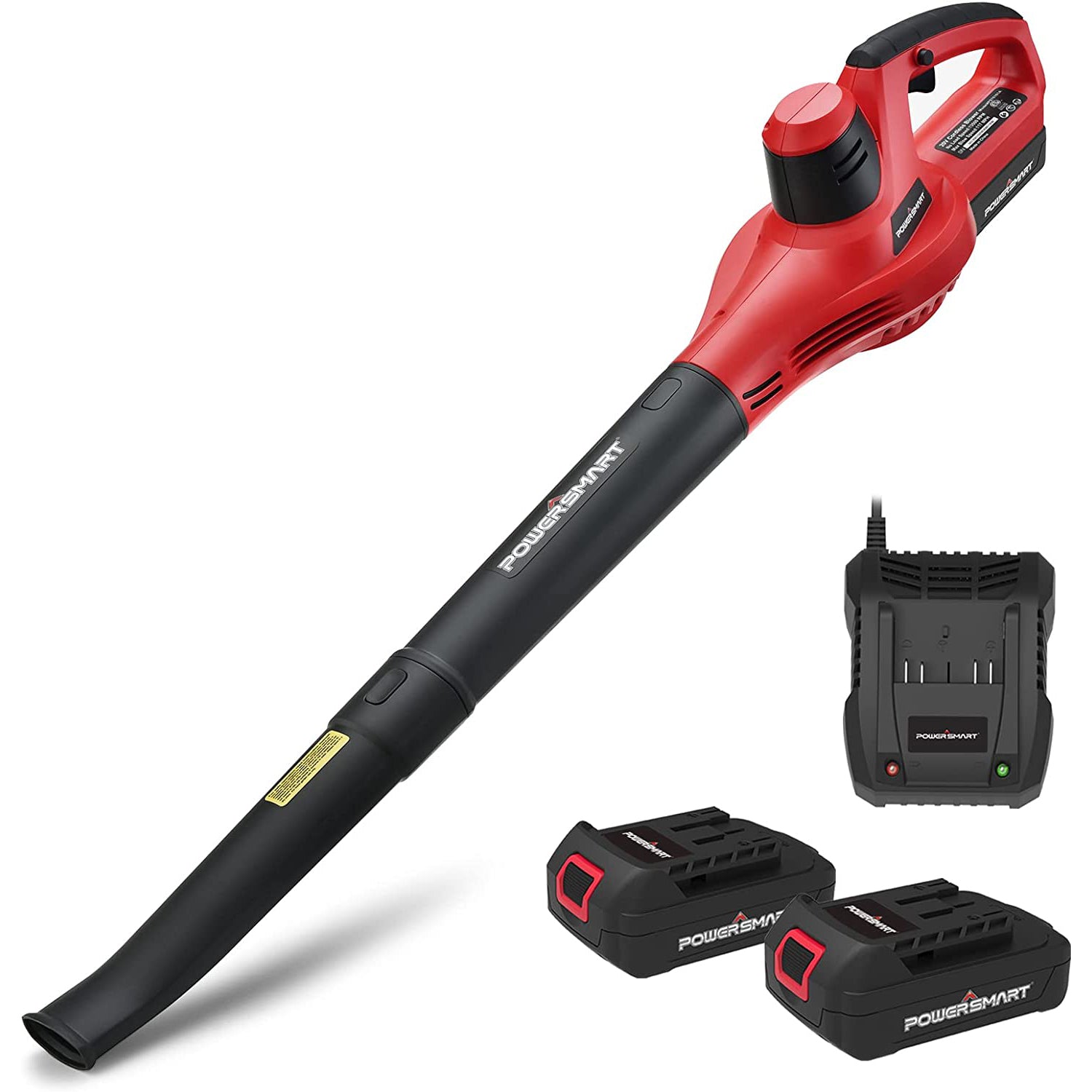



























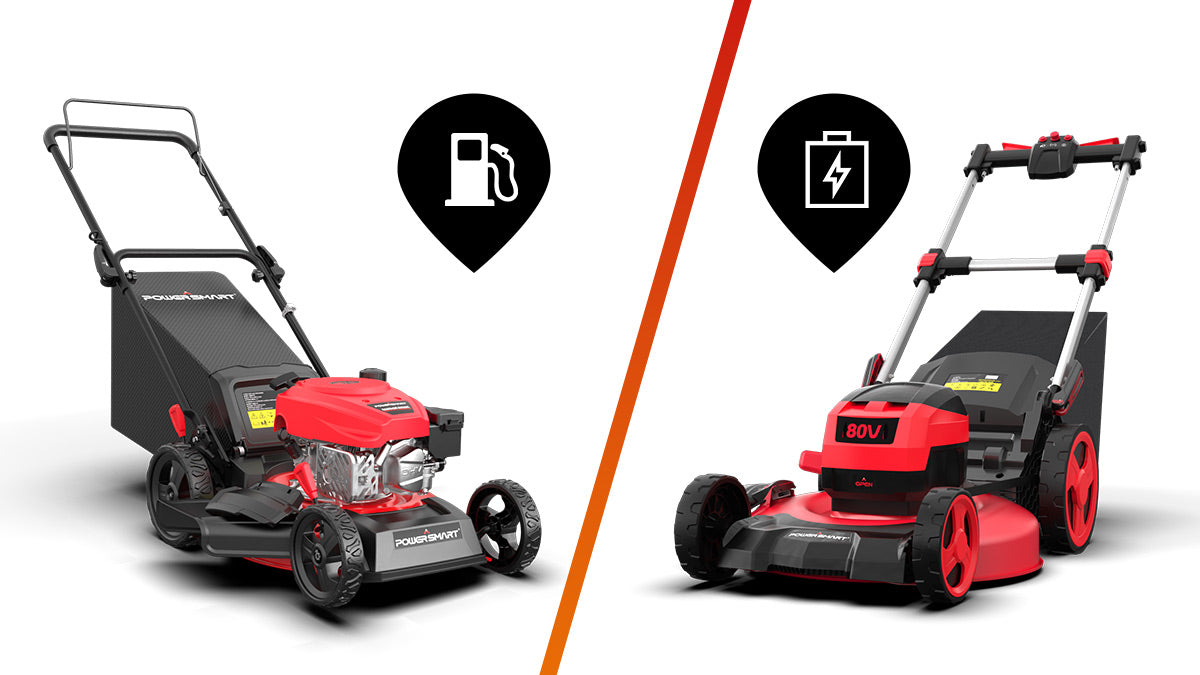
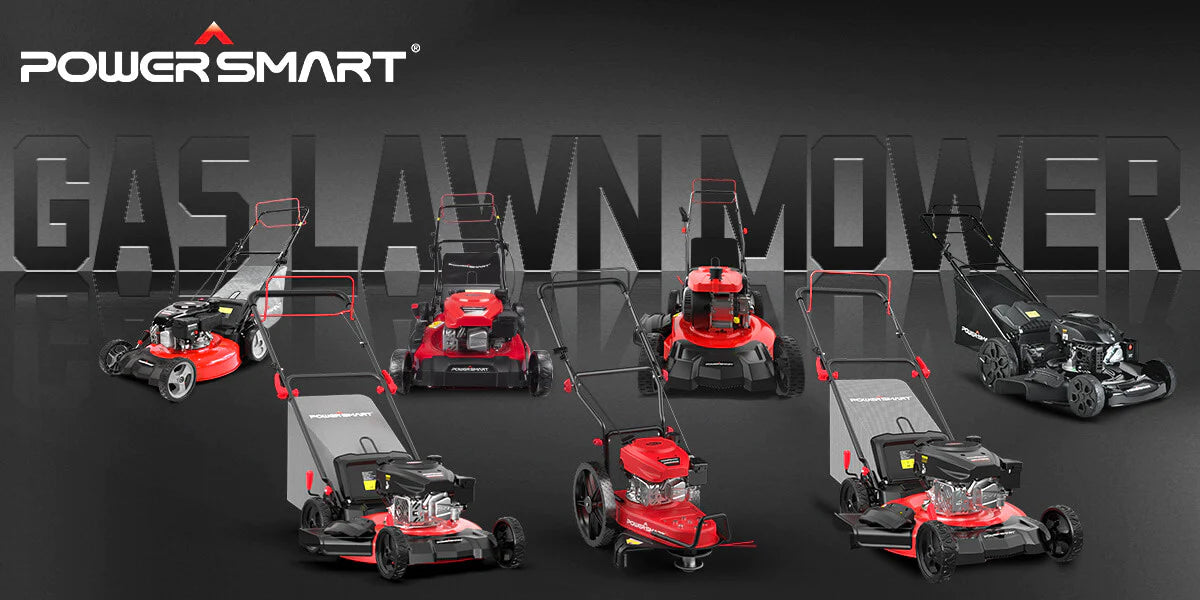

Leave a comment
All comments are moderated before being published.
This site is protected by hCaptcha and the hCaptcha Privacy Policy and Terms of Service apply.